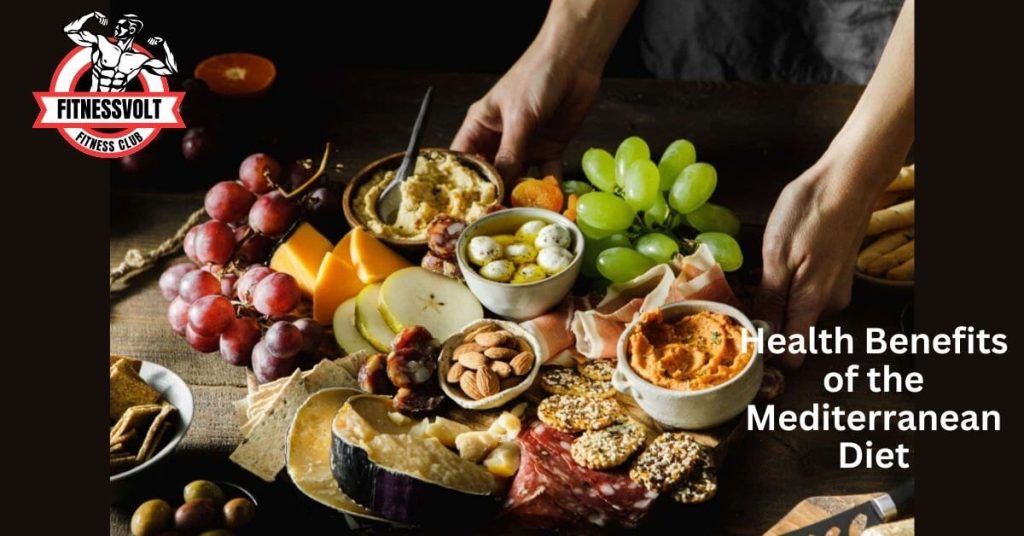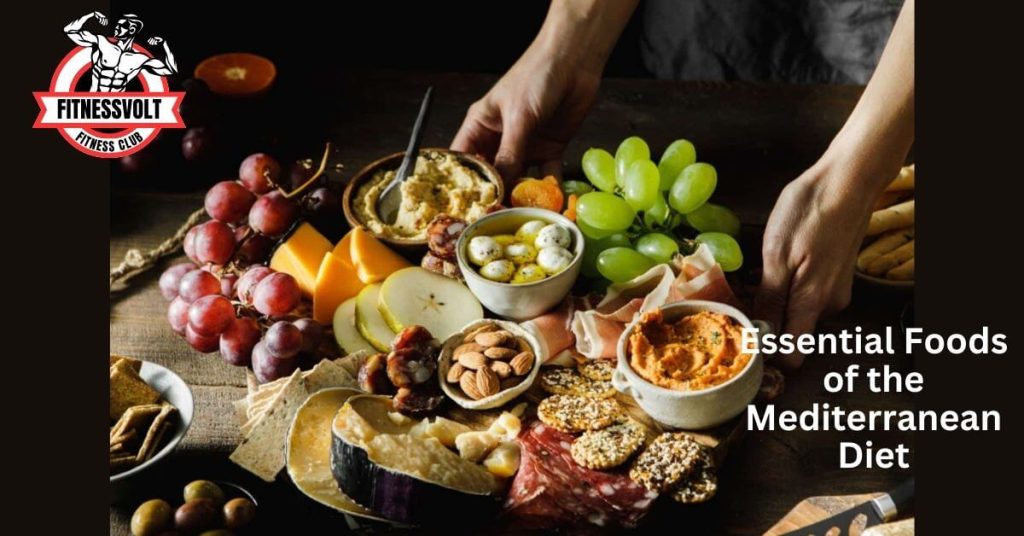More than just a way of eating, the Mediterranean diet is celebrated as a lifestyle in regions abutting the Mediterranean Sea. This has made it the most recommended one amongst health practitioners for its focus on whole foods, healthy fats, and a well balanced nutrient profile.

What is the Mediterranean Diet?
As the name suggests, the Mediterranean diet is based on the traditional eating practices of people living in countries like Greece, Italy, and Spain. Consuming a diverse mix of fresh, in-season, and whole foods, engaging in physical activity, and eating socially are the key points.
Brief History of the Mediterranean Diet
The Mediterranean diet dates back to the 1960s when researchers began investigating why people in Mediterranean countries scored far lower for several diseases and maladies compared to those elsewhere in the world. That prompted more research, and ultimately, the Mediterranean diet became associated with a heart-healthy solution to eating.
Importance of the Mediterranean Diet in Today’s World
In a world today that moves quickly, with processed foods and a sedentary lifestyle the Mediterranean diet hails as a welcome back to basics, slow food eating. It is the way to live healthy and avoid getting sick with chronic diseases living a full life without having to diet.
Understanding the Core Principles
Focus on Plant-Based Foods
Plant-based foods are one of the bedrock tenets of the Mediterranean diet. This includes a huge wide range of fruits, vegetables, whole grains, legumes, nuts, and seeds. Acting as a substance and fiber stimulant, these food sources are overflowing with fundamental supplements, fiber, and cancer prevention agents that help keep general well-being.
Healthy Fats: Olive Oil as a Staple
Olive oil is the basic in the Mediterranean diet. Whereas most oils and fats may need to be limited, such as in a fat-free diet, the Mediterranean diet encourages but does not require the intake of olive oil or fish fat (omega-3 fatty acids). These fats have anti-inflammatory, and heart-health benefits and are flavor enhancers.
Moderate Dairy and Protein Intake
The Mediterranean diet is low in dairy foods including yogurt and cheese. They are an excellent source of calcium and contain probiotics that protect bone health and the digestive system. Protein comes from fish, chicken, legumes, and red meat is kept to a minimum.
The Role of Fish and Seafood
One of the basics of the Mediterranean diet is fish and especially seafood, as it contains high levels of omega-3 fatty acids. These saturated fats are important for brain function, heart health, and reducing inflammation. Fish is usually consumed at least twice weekly within the diet.
Limited Consumption of Red Meat and Sweets
The consumption of primary red meat is low in the Mediterranean diet and only occasional, but leaner cuts are preferred. Sweets and desserts are restricted to special occasions as well. They are usually prepared with natural sweeteners like honey and consumed in moderation, only.
Wine in Moderation
Alcohol, particularly red wine, is frequently included in the Mediterranean diet (in moderation). Most commonly taken during meals, it is said to offer a heart-protective effect thanks to its high antioxidant content. That being said, moderation is important — and remember to help prevent cancer, the recommended consumption level is no more than one glass per day for females and two glasses for males.
Health Benefits of the Mediterranean Diet

Heart Health: Taking Steps to Lower Your Risk of Heart Disease
Heart health We already know the Mediterranean diet is heart-healthy. Thanks to its focus on and abundance of healthy fats, whole grains, and fresh produce it can reduce the risk of cardiovascular disease far more effectively than a low-calorie diet alone.
Weight Management and Obesity Prevention
However, the Mediterranean diet is a way of life and does not focus on yo-yo diets with significant weight loss only to regain it within a year. Encourages proper portion control and dietary variety in the long run, reducing rates of obesity.
Diabetes Management and Prevention
It is also a diet of great utility in the hands of those who suffer from diabetes or have dangerous food. vegan syndication. The high fiber content of the diet helps to avoid rollercoaster blood sugar, and its emphasis on healthy fats + low glycemic index foods helps with insulin resistance.
Mental Health and Cognitive Function
New findings are starting to reveal that the Mediterranean diet may benefit mental health, too. The nutrient-dense diet is rich in foods like fish, nuts, and leafy greens which have been linked to reduced rates of depression and age-related cognitive decline – two conditions associated with Alzheimer’s.
Longevity and Reduced Mortality Rate
Frequently associated with longevity; the Mediterranean diet. Or at least, it’s beneficial indeed for some populations following this diet (since they have lower mortality rates and a longer lifespan), probably the result of the healthy goods of this diet.
Anti-Inflammatory and Antioxidant Effects
The diet is primarily based on anti-inflammatory and antioxidant-packed foods, most of which come from fruits, vegetables, nuts if you are not allergic to them- and olive oil. These elements fight inflammation and oxidant stress, which contributes to anti-aging and prevents the onset of many chronic diseases.
Mediterranean Diet Pyramid: A Visual Guide
The Mediterranean Diet PyramidA visual guide shows the types and frequencies of foods that form weekly Mediterranean menus.
Daily Recommendations
The bottom line is the foods that SHOULD be eaten every day (whole grains, fruits, vegetables, olive oil, and dairy). These are based on the food of the diet.
Weekly Recommendations
The base of the pyramid consists of foods to be eaten every day, followed by food that should be eaten several times a week including fish, poultry, eggs, and legumes. These are good sources of protein and nutrients.
Occasional Indulgences
Meats and Sweets: There you can find those that should be consumed in moderation, such as red meat and sugars. All of this is to be had in moderate amounts sporadically, never daily.
Essential Foods of the Mediterranean Diet

Whole Grains: The Foundation of Every Meal
Barley, quinoa, and whole wheat for instance are all healthy whole grains that play a role in the Mediterranean diet. They provide the body with important nutrients, fiber, and energy.
Fruits and Vegetables: Eating the Rainbow
One of the basic tenets of following the Mediterranean diet is to always consume a rainbow of fresh fruits & veggies. This offers a great number of vitamins, minerals, and antioxidants.
Nuts and Seeds: A Handful a Day
one serve (a small handful or 30g) a day
Foods include nuts and seeds good sources of healthy fats, protein, and fiber. A few every day can go a long way to keeping our hearts and whole bodies safe.
Legumes: Protein-Packed Powerhouses
Beans, lentils, and chickpeas are crucial protein sources in the Mediterranean diet. Fiber, as well as essential nutrients
Fish and Seafood: Omega-3 Rich Choices
Choose Omega-3 Rich Fishes
The Mediterranean diet is abundant in fish and seafood. There is a good chance they are also rich in omega-3 fatty acids, which we all need more of and can help support our heart and brain health.
Herbs and Spices: Flavor Without the Salt
Oregano, basil, garlic: These herbs and spices make an appearance in most dishes consumed with a Mediterranean dietary pattern. They help things taste good without smashing you in the face with salt.
Cooking and Eating the Mediterranean Way
Simple and Fresh: Key to Mediterranean Cooking
In the Mediterranean, it is refreshing and simple. Dishes are frequently made with just a handful of high-quality ingredients meant to showcase the flavors nature offers.
Typical Mediterranean Meals: Breakfast, Lunch, and Dinner
A typical Mediterranean diet day might include a breakfast of whole grain bread drizzled with olive oil and fruit, followed by fresh salad with fish for lunch, then grilled chicken and roasted vegetables for dinner.
Snacks and Small Plates: Embracing Tapas and Mezze
The Mediterranean diet is essentially a tapas or mezze style of cooking on small plates. Great to snack on or to dine light these are plates of nuts and olives, hummus, and vegetables.
The Social Aspect of Eating: Sharing Meals with Loved Ones
Mediterranean communities use mealtimes as regular social events that typically unify loved ones. In this sense, food is eaten in a more communal and shared way which only contributes to the overall pleasure of eating.
How to Transition to a Mediterranean Diet
Gradual Changes: Start with One Meal a Day
You do not have to switch to a Mediterranean diet overnight. Begin with one Mediterranean meal a day, and then build from there.
Stocking Your Pantry: Must-Have Ingredients
You can remove this temptation by robbing your pantry of the ingredients that make it possible for a fast food restaurant to serve you an entire meal in minutes and stock it with some Mediterranean staples. Find everything you need on the Mediterranean diet: olive oil, whole grains, legumes, herbs.
Meal Planning and Preparation Tips
Meal prepping for the Mediterranean Diet is Effective Get your ingredients ready in advance, and stick to easy, fresh meals.
Overcoming Common Challenges
And some of the Mediterranean less-common challenges: sourcing fresh ingredients and adjusting to a new way of eating. However, with planning and organization, these legal hurdles can be navigated.
Debunking Myths about the Mediterranean Diet
Is It Just Another Fad Diet?
The Mediterranean Diet is not just a mere fad diet it has long been associated with a slew of healthful advantages on top of preventing heart disease.
The Cost Factor: Is It Expensive?
Many people may think that eating Mediterranean is expensive but in my experience, it can be quite budget friendly particularly if you are focusing on plant-based legumes and vegetables and seasonal produce.
Mediterranean Diet vs. Low-Carb Diets
The Mediterranean diet, on the other hand, is abundant with healthy carbs from whole grains and many fruits and vegetables making it more balanced and sustainable compared to most low-carb diets.
Mediterranean Diet and Sustainability
Environmentally Friendly Eating Habits
One of the reasons the Med diet is so sustainable is because it encourages more planet-friendly ways to eat, with a focus on plant-based foods and less meat which can help you reduce your carbon footprint.
Supporting Local and Seasonal Produce
Local produce and seasonality: This way of eating is more sustainable, encouraging agriculture that is in harmony with the environment so reduces our carbon footprint just by selecting foods.
Reducing Food Waste
Local produce and seasonality: This way of eating is more sustainable, encouraging agriculture that is in harmony with the environment so reduces our carbon footprint just by selecting foods.
Conclusion
This lifestyle allows balanced, pleasurable, and sustainable nutrition in the long run aimed at gaining health, preventing chronic diseases, and increasing life quality. A diet focused on whole foods, healthy fats, and an intuitive way to eat, the non-diet is simple to pick up and stick with for a lifetime.


